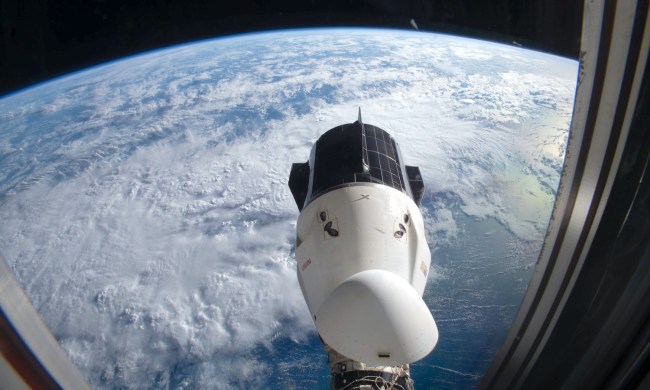While all the recent attention has been on SpaceX’s Falcon 9 rocket and its landing technology, engineers have also been working hard on developing the latest version of its Dragon capsule.
The spacecraft, which is currently used to take supplies to the International Space Station, always returns to Earth with a splash, dropping into the ocean with its descent slowed by parachutes.
But SpaceX wants it to land on hard ground using thrusters, like it’s been trying with varying degrees of success with its Falcon 9 rocket. While such landings for the capsule would of course eliminate the need for salvage teams to head out to sea, it’s also crucially important if SpaceX has any hope of achieving its long-term aim of missions to Mars, a place where, the last time we looked, no oceans were sloshing around.
Offering a glimpse into its work, the space company this week released a video (above) of a recent test of the SuperDraco thrusters designed to bring the Dragon 2 capsule – the version designed for manned missions – gently back to the ground “with the accuracy of a helicopter.”
As the footage shows, the thrusters all fire up together to raise the spacecraft for a five-second hover, “generating approximately 33,000 lbs of thrust before returning the vehicle to its resting position,” SpaceX said in comments accompanying the video.
The tests, which are taking place at a SpaceX facility in McGregor, Texas, allow engineers to refine the spacecraft’s landing software and systems, NASA said. The first Dragon flights taking astronauts to the International Space Station could take place as early as next year, though for the time being the return trips to Earth are likely to still involve parachute landings in the sea.


